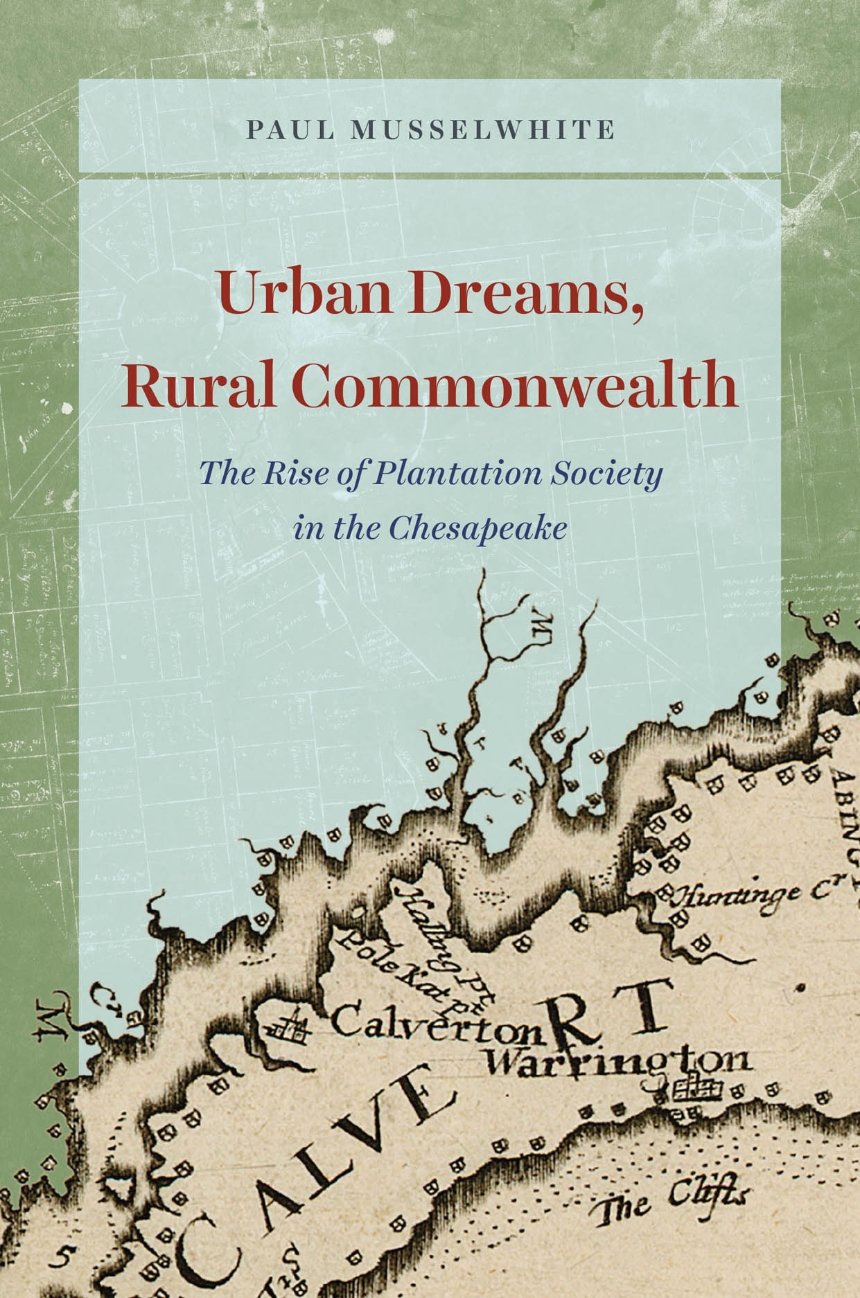Urban Dreams, Rural Commonwealth
The Rise of Plantation Society in the Chesapeake
9780226585284
9780226585314
Urban Dreams, Rural Commonwealth
The Rise of Plantation Society in the Chesapeake
The English settlers who staked their claims in the Chesapeake Bay were drawn to it for a variety of reasons. Some sought wealth from the land, while others saw it as a place of trade, a political experiment, or a potential spiritual sanctuary. But like other European colonizers in the Americas, they all aspired to found, organize, and maintain functioning towns—an aspiration that met with varying degrees of success, but mostly failure. Yet this failure became critical to the economy and society that did arise there. As Urban Dreams, Rural Commonwealth reveals, the agrarian plantation society that eventually sprang up around the Chesapeake Bay was not preordained—rather, it was the necessary product of failed attempts to build cities.
Paul Musselwhite details the unsuccessful urban development that defined the region from the seventeenth century through the Civil War, showing how places like Jamestown and Annapolis—despite their small size—were the products of ambitious and cutting-edge experiments in urbanization comparable to those in the largest port cities of the Atlantic world. These experiments, though, stoked ongoing debate about commerce, taxation, and self-government. Chesapeake planters responded to this debate by reinforcing the political, economic, and cultural authority of their private plantation estates, with profound consequences for the region’s laborers and the political ideology of the southern United States. As Musselwhite makes clear, the antebellum economy around this well-known waterway was built not in the absence of cities, but upon their aspirational wreckage.
Paul Musselwhite details the unsuccessful urban development that defined the region from the seventeenth century through the Civil War, showing how places like Jamestown and Annapolis—despite their small size—were the products of ambitious and cutting-edge experiments in urbanization comparable to those in the largest port cities of the Atlantic world. These experiments, though, stoked ongoing debate about commerce, taxation, and self-government. Chesapeake planters responded to this debate by reinforcing the political, economic, and cultural authority of their private plantation estates, with profound consequences for the region’s laborers and the political ideology of the southern United States. As Musselwhite makes clear, the antebellum economy around this well-known waterway was built not in the absence of cities, but upon their aspirational wreckage.
352 pages | 15 halftones | 6 x 9 | © 2018
American Beginnings, 1500-1900
Architecture: History of Architecture
Geography: Cultural and Historical Geography
History: American History, Urban History
Reviews
Table of Contents
Acknowledgments
Introduction: “Our Folly and Ruining Singularity”
1 Garrison Towns, Corporate Boroughs, and the Search for Order under the Virginia Company
2 From Corporate Communities to County Courts in the Early Stuart Empire
3 The Political Geography of Empire in the English Revolution
4 Planters, the State, and the Restoration City
5 Towns, Improvement, and the Contest for Authority in the 1680s
6 The Imperial City and the Solidifying of the Plantation System
7 Urban Growth and Country Thought in the Planters’ Golden Age
Epilogue: “This little Common wealth”
List of Abbreviations
Notes
Index
Introduction: “Our Folly and Ruining Singularity”
1 Garrison Towns, Corporate Boroughs, and the Search for Order under the Virginia Company
2 From Corporate Communities to County Courts in the Early Stuart Empire
3 The Political Geography of Empire in the English Revolution
4 Planters, the State, and the Restoration City
5 Towns, Improvement, and the Contest for Authority in the 1680s
6 The Imperial City and the Solidifying of the Plantation System
7 Urban Growth and Country Thought in the Planters’ Golden Age
Epilogue: “This little Common wealth”
List of Abbreviations
Notes
Index
